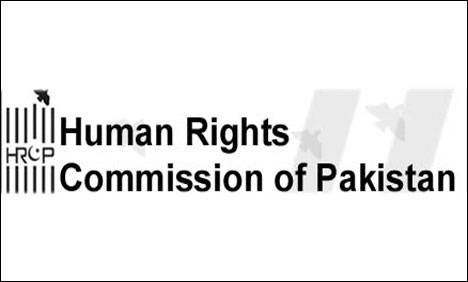LAHORE - The Human Rights Commission of Pakistan has shared positive and negative human rights developments in country in its June to July Human Rights monitoring report.
During three months, 77 death row convicts were executed and as many as 32 people were sentenced to death. Courts had awarded death penalty to 13 persons in this period.
HRCP stated that issuance of first gender neutral passport in June is positive human rights development in Pakistan. The first Pakistani passport with the ‘third-gender’ option was issued to Farzana Riaz, a transgender activist and president of rights organisation TransAction.
The transgender community hailed the step as a positive step for the transgender community in Pakistan and an important victory in the struggle for the identity and rights of transgender population in Pakistan.
Another significant move was about restoration of the Section 7 of Christian Divorce Act.
In May, Lahore High Court restored a key provision of the Christian Divorce Act, 1869, which enabled members of the Christian community to end their marriages in a dignified manner, without having to resort to false accusations of adultery. In 1981, General Ziaul Haq had deleted Section 7 of the 1869 law through an ordinance (Federal Law and Clause Ordinance 1981) which effectively left no justifiable ground for Christian citizens to seek divorce other than alleging adultery.
The petitioner in this case was a Christian man who wanted to divorce his wife but did not wish to do that by accusing her of adultery. In the past, many Christian men and women felt compelled to either make false claims of adultery against their spouses or denounce Christianity to in a bit to seek dissolution of their marriages.
In June, a petition in the Sindh High Court by representatives of civil society organizations and others challenged the prime minister’s approval of handing over the administrative control of the autonomous National Commission for Human Rights (NCHR) to the federal ministry of human rights (MoHR).
The court ordered the NCHR to continue functioning in accordance with the relevant laws, including the National Commission for Human Rights Act 2012.
According to statistics shared by the government-constituted commission of inquiry on enforced disappearances, 144 new cases were brought to the attention of the Commission from April to June 2017.
On April 27, a political worker of the ruling party PML-N in Gilgit-Baltistan was allegedly threatened and later beaten up in Aliabad, Hunza. The political worker faced this situation apparently for critcising his own party for failing to fulfil its manifesto.
On May 13, 10 labourers were killed in Pishgan area of Gwadar when unidentified armed motorcyclists shot at them at a construction site where they were working. Militant insurgent group Balochistan Liberation Army (BLA) claimed responsibility.
On May 18, a journalist working with a foreign media outlet, reportedly received a call from a senior official of Federal Investigation Agency (FIA), asking him to appear in person at the FIA headquarters for questioning and bring along the electronic devices he used for his work.
On May 19, three workers working on the construction of a highway in Balochistan were gunned down by suspected separatist insurgents. The victims were going to the small town of Hoshab when the incident took place. The victims belonged to the Kharipur area of Sindh province.
On May 12, 26 people were killed and at least 30 injured in a suicide attack, targeting the convoy of Senate deputy chairman Abdul Ghafoor Haideri, in the town of Mastung. The attack was claimed by the so-called Islamic State group.
In May, four political activists were abducted from four different villages in Badin. In a press statement, HRCP demanded the immediate and safe recovery of the victims and a detailed probe into the actions of the perpetrators.
On June 23, at least 72 people were killed and several others injured in two consecutive blasts in Parachinar, Kurram Agency, days before Eid ul-Fitr. Militant group Lashkar-e-Jhangvi claimed the bombings. Families of victims staged a week-long sit-in. The sit-inended only after the army chief visited the protesters and assured them that their demands would be met.
On June 23, at least 14 people were killed, including 10 police personnel, in a suicide bombing at a police checkpoint in Quetta. A militant group called Jamaat-ur-Ahrar claimed responsibility for the attack.
HRCP discussed in detailed about the mob violence tilted “Mob violence critical questions for society and state”. The murder of Mashal Khan at the hands of a mob of hundreds in Mardan district on April 13 elicited a much stronger chorus of condemnation and outrage than that usually accompanying cases of ‘mob justice’ in the country.
A report compiled by a 13-member joint investigation team (JIT) investigating Mashal’s killing found that a group in the university had incited a mob against Mashal. The investigation found no evidence regarding allegations of blasphemy against him. The team concluded that the killing of the mass communications student was planned in advance, by the leader of a student group and president of the employees union at the university.
FAIZAN ALI WARRAICH






